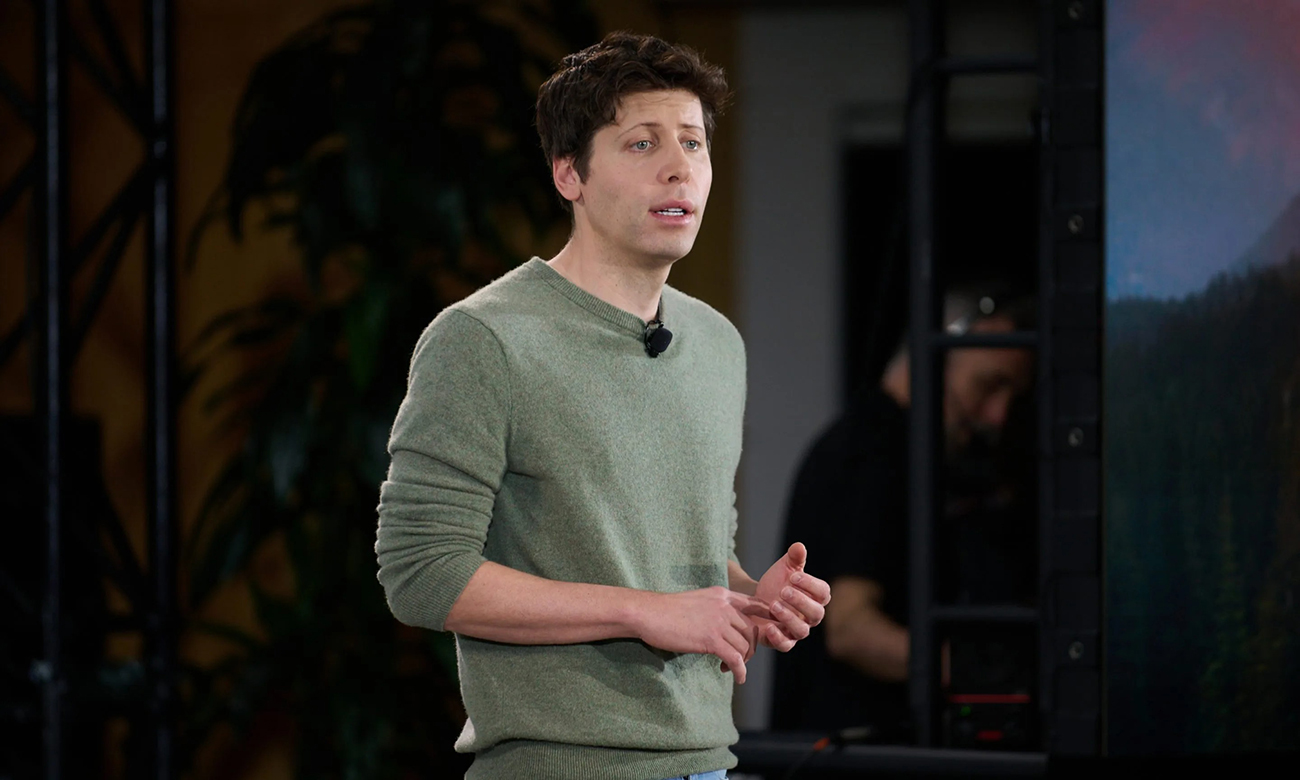
说起人工智能及其对人类的最终影响,很少有人能比开发出ChatGPT的OpenAI首席执行官萨姆·奥特曼思考更深刻。所以,当奥特曼表示担心“后世会如何看待我们”时,这就值得关注了。
上周末,奥特曼在一系列推文中分享了对当前人工智能技术,以及今后新工具可能造成危险的看法。
最近ChatGPT让不少人很是吃惊,特别是ChatGPT版必应,因为人工智能提出的建议和评论有时令人不安,OpenAI和微软(Microsoft)只得努力安抚公众,尽力解释清楚该技术。
奥特曼似乎并不担心现在的ChatGPT,而是更关心今后。他在推特(Twitter)上写道,“虽然这一代人工智能工具并不可怕,但可怕的人工智能可能已经距离我们不远了”。
他似乎特别关注时间,预测人工智能工具很快将融入社会,而全世界需要时间适应。
他写道,“人们可能很快就要适应与人工智能工具深度融合的世界;好处(和乐趣!)有很多。机构也需要充足的时间了解具体该做什么。监管至关重要,也需要时间弄清楚……理解当前发生的事,了解人们希望如何使用工具,以及社会如何同步发展。”
他也想到后代将如何回顾历史中的此刻以及现在做出的决定,他似乎希望获得一些理解和原谅。
“希望每代人都能宽容对待前面几代,”他写道。“人类有很多不完美之处。我们的祖父辈就做过可怕的事;孙辈会明白我们因为不够了解而做了一些可怕的事。”
“我们的前辈当中有好人也有坏人,”他继续写道,“他们共同推动了世界向前发展;将社会道德进步当成所有人都要负责的持续联合项目很重要。现在轮到我们了。希望未来的人能以同样的方式看待我们。”
上周,特斯拉(Tesla)首席执行官埃隆·马斯克有意远离了OpenAI。2015年,他曾出资帮助创立当时作为非盈利组织的OpenAI。近年来,微软向OpenAI大笔投资,上个月表示将投入更多资金。
上周五马斯克发布推文称,“OpenAI成立之处是开源的(这也是我为何起名为“开放”人工智能),是非盈利公司,目标在于制衡谷歌(Google)。如今却成为由微软实际控制的闭源,追求利润最大化的公司。这完全违背了我的初心。”(财富中文网)
译者:夏林
说起人工智能及其对人类的最终影响,很少有人能比开发出ChatGPT的OpenAI首席执行官萨姆·奥特曼思考更深刻。所以,当奥特曼表示担心“后世会如何看待我们”时,这就值得关注了。
上周末,奥特曼在一系列推文中分享了对当前人工智能技术,以及今后新工具可能造成危险的看法。
最近ChatGPT让不少人很是吃惊,特别是ChatGPT版必应,因为人工智能提出的建议和评论有时令人不安,OpenAI和微软(Microsoft)只得努力安抚公众,尽力解释清楚该技术。
奥特曼似乎并不担心现在的ChatGPT,而是更关心今后。他在推特(Twitter)上写道,“虽然这一代人工智能工具并不可怕,但可怕的人工智能可能已经距离我们不远了”。
他似乎特别关注时间,预测人工智能工具很快将融入社会,而全世界需要时间适应。
他写道,“人们可能很快就要适应与人工智能工具深度融合的世界;好处(和乐趣!)有很多。机构也需要充足的时间了解具体该做什么。监管至关重要,也需要时间弄清楚……理解当前发生的事,了解人们希望如何使用工具,以及社会如何同步发展。”
他也想到后代将如何回顾历史中的此刻以及现在做出的决定,他似乎希望获得一些理解和原谅。
“希望每代人都能宽容对待前面几代,”他写道。“人类有很多不完美之处。我们的祖父辈就做过可怕的事;孙辈会明白我们因为不够了解而做了一些可怕的事。”
“我们的前辈当中有好人也有坏人,”他继续写道,“他们共同推动了世界向前发展;将社会道德进步当成所有人都要负责的持续联合项目很重要。现在轮到我们了。希望未来的人能以同样的方式看待我们。”
上周,特斯拉(Tesla)首席执行官埃隆·马斯克有意远离了OpenAI。2015年,他曾出资帮助创立当时作为非盈利组织的OpenAI。近年来,微软向OpenAI大笔投资,上个月表示将投入更多资金。
上周五马斯克发布推文称,“OpenAI成立之处是开源的(这也是我为何起名为“开放”人工智能),是非盈利公司,目标在于制衡谷歌(Google)。如今却成为由微软实际控制的闭源,追求利润最大化的公司。这完全违背了我的初心。”(财富中文网)
译者:夏林
Few people think about artificial intelligence and its ultimate impact on humanity more than Sam Altman, CEO of ChatGPT maker OpenAI. So when Altman worries about “how people of the future will view us,” it’s worth paying attention.
In a series of tweets this weekend, Altman shared his thoughts on the dangers posed by current A.I. technology—and by the tools that will follow in the years ahead.
ChatGPT has been freaking some people out of late—particularly the ChatGPT-powered Bing, whose at times unsettling suggestions and comments have prompted OpenAI and Microsoft to try to reassure the public and better explain the technology.
Altman doesn’t seem concerned about today’s ChatGPT, but rather what’s next. He tweeted, “although current-generation AI tools aren’t very scary, I think we are potentially not that far away from potentially scary ones.”
He seemed preoccupied with time, predicting that the integration of A.I. tools into society will happen quickly—and the world needs time to adjust.
He wrote, “the adaptation to a world deeply integrated with AI tools is probably going to happen pretty quickly; the benefits (and fun!) have too much upside. We also need enough time for our institutions to figure out what to do. Regulation will be critical and will take time to figure out…having time to understand what’s happening, how people want to use these tools, and how society can co-evolve is critical.”
His thoughts also turned to how future generations will look back on this point of history and the decisions being made now—and he seemed to hope for some understanding and forgiveness.
“I wish that all generations would treat previous generations with indulgence,” he wrote. “Humanity is deeply imperfect. Our grandparents did horrible things; our grandchildren will understand that we did horrible things we don’t yet understand.”
“The people who came before us are a complete package of good and bad,” he continued, “and collectively they pushed the world forward; it’s important to view the moral progress of society as an ongoing joint project we are all responsible for. Now it’s our turn. I hope the people of the future will view us the same way.”
This week, Tesla CEO Elon Musk distanced himself from OpenAI, which he helped fund and establish as a nonprofit in 2015. Microsoft has invested heavily in OpenAI in recent years and last month indicated it will sink even more money into the venture.
On Friday, Musk tweeted, “OpenAI was created as an open source (which is why I named it “Open” AI), non-profit company to serve as a counterweight to Google, but now it has become a closed source, maximum-profit company effectively controlled by Microsoft. Not what I intended at all.”






